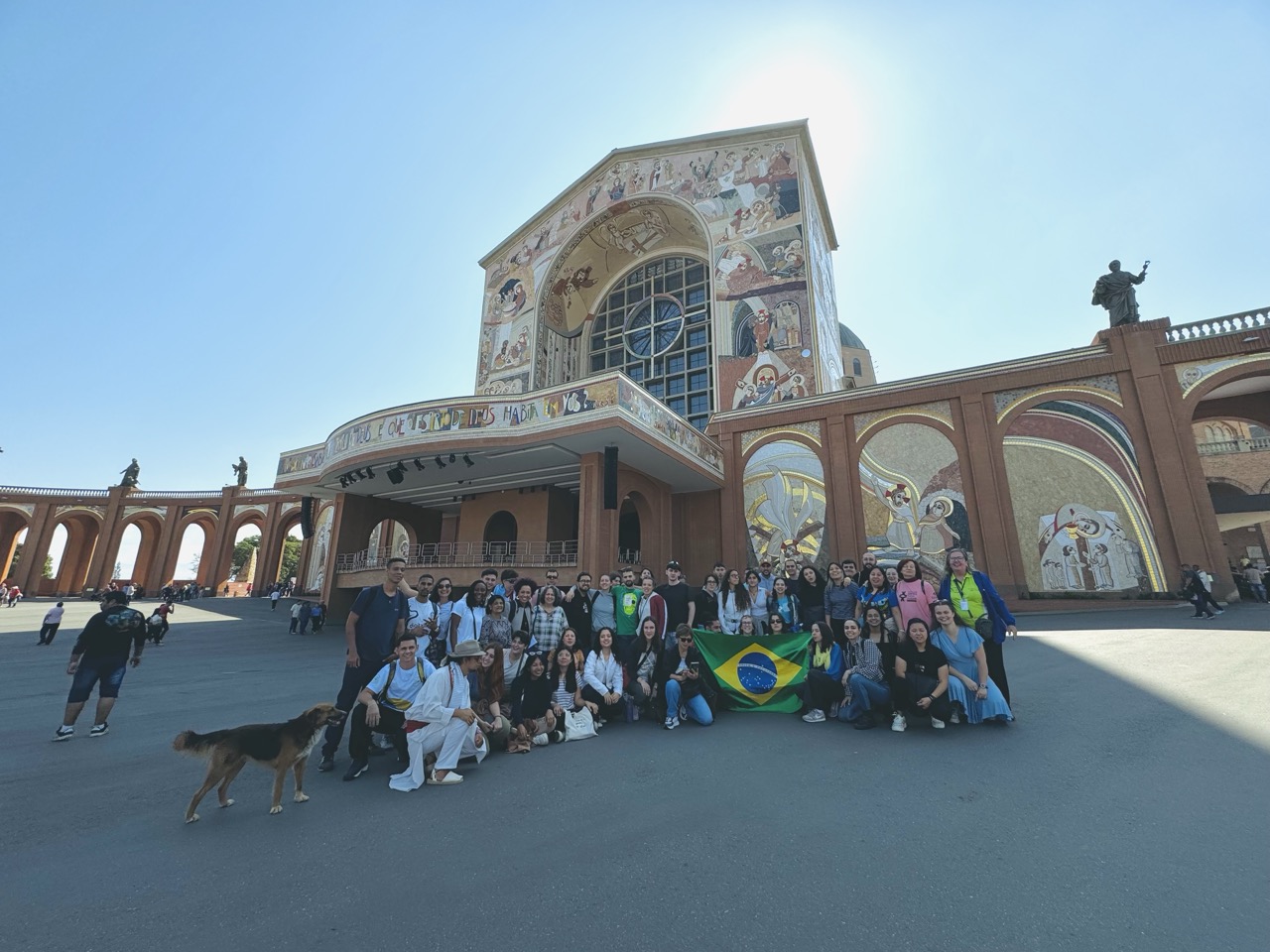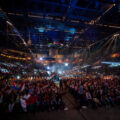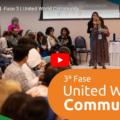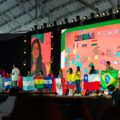
Workshop
Genfest and Gen Verde: Anita Martinez’s experience
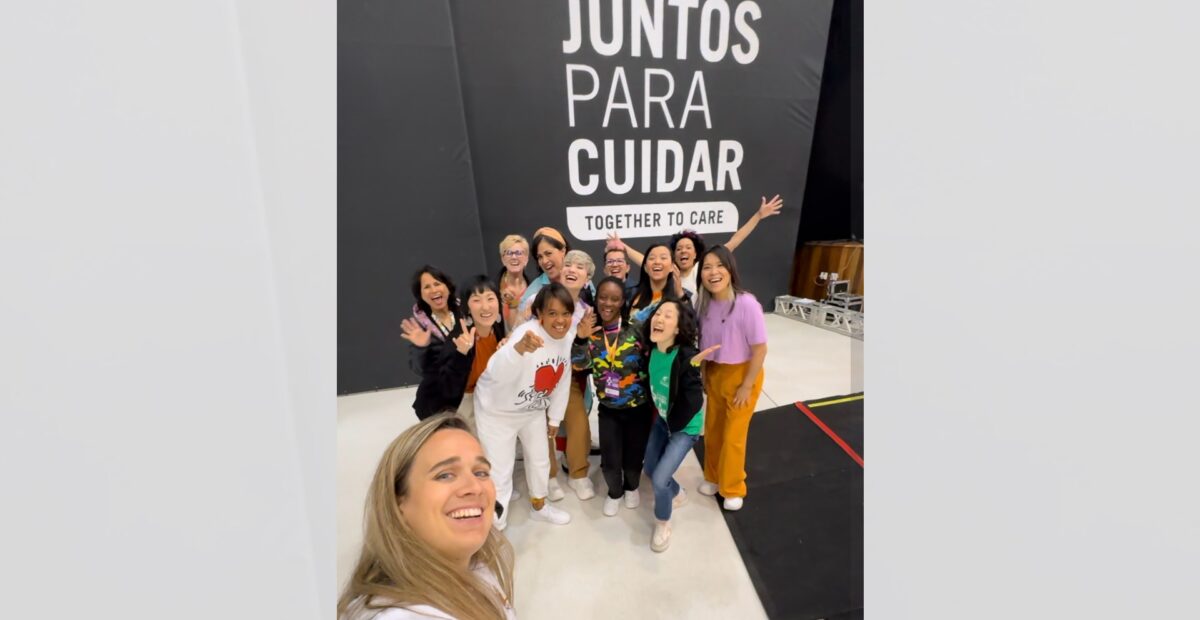
Anita Martinez, an Argentinian who is a member of Gen Verde, shared with us her experience during Genfest, the international event of the young people of the Focolare Movement.
This year was the Genfest in Aparecida, Brazil: a great opportunity for young people all over the world. In several articles and interviews, we talked about the history and the present of this extraordinary event, which aims to continue to build unity and fraternity among people. Thus, we wanted to share the experiences of two United World Project collaborators: Anita Martinez and Luísa Rodrigues.
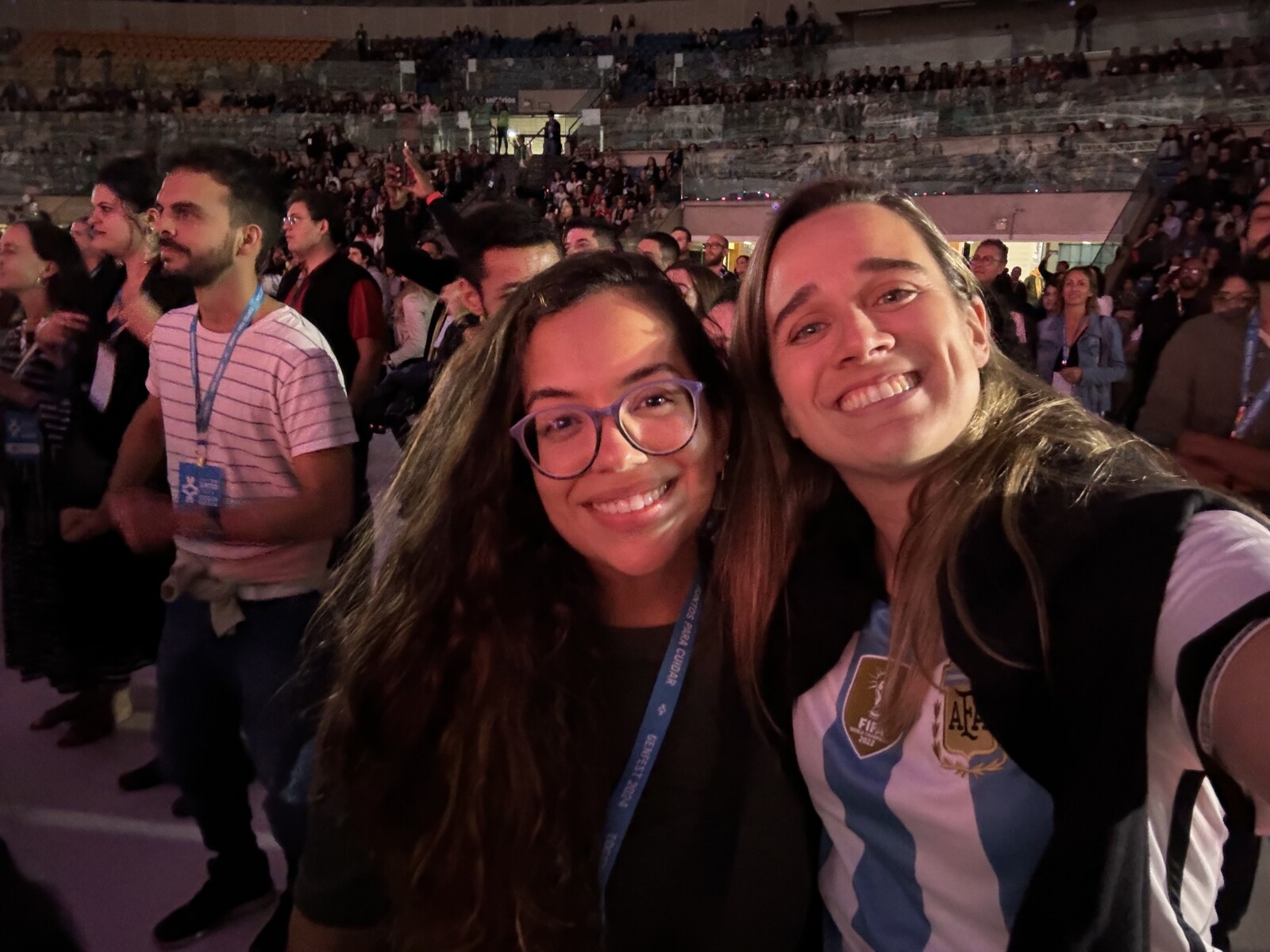
Both of them were in Brazil for this event, which was divided in three phases. And we believe that their memories and thoughts could be very useful to understand the value of this important appointment. After Luisa’s words, here are Anita’s precious ones. She talks about the work of the Gen Verde.
When did you know that you were going to the Genfest in Brazil?
Well, given that I am a part of Gen Verde, where I work in the communications and social media manager, I knew about it as soon as it was confirmed that Gen Verde was going to participate in the event.
How did you do your work?
It started before arriving in Brazil, because we started promoting the presence of Gen Verde at the Genfest in Aparecida. Also because we launched a song specially for the occasion, “Start Here and Now”, with the participation of Banda Unita (which was the Genfest band) and AsOne (an Italian band).

And then? How was it?
Our days in Brazil were intense, as Gen Verde conducted various activities: concerts, conferences, artistic workshops, performances, and even sang during a couple of Masses in the Sanctuary of Aparecida. Every day was very dynamic and busy, yet full of life… you know when you feel that tiredness after a long day full of life… a tiredness which is worth feeling.
For how long did you stay in Brazil?
For almost 3 weeks: from the 12th to the 31st of July. From the 1st to the 3rd phase, and then after that we did workshops and performances in a couple different places in Sao Paulo.
So, you followed all three phases of the Genfest?
Yes, with great passion, even though my perspective was different from that of the participants. In the 1st phase we went to the Fazenda de Esperança in Pedrinhas (Guaratinguetá, São Paulo): one of the first men’s “Fazendas”. This is a therapeutic community with over 30 years of experience in the recovery of people who suffer from addictions.
What kind of activities did you do there?
During the 1st phase, Gen Verde conducted all the rehearsals along with the dancers, singers, and musicians of the other two bands, to prepare for the performances that would take part in the second phase. Then, also during the 1st phase at Aparecida, we carried the “Start Now Workshop Project”, which is our artistic workshops program for young people. We were together with many young participants of the Genfest as well as a few of the young men and women who are recovering at Fazenda de Esperança.
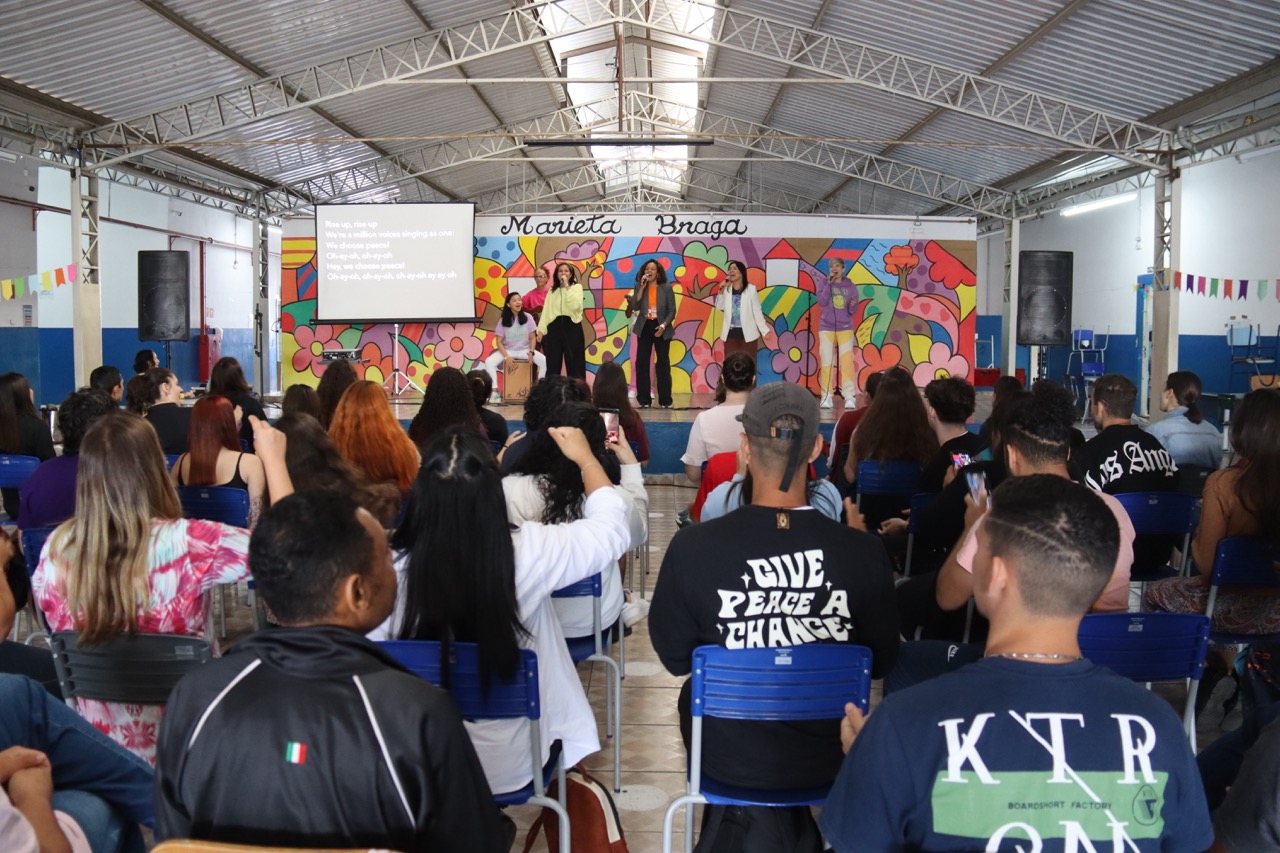
What do you recall feeling during this phase?
I remember feeling a lot of joy, seeing so many young people working together, while doing the dance, singing, percussions and drama workshops. While watching them give their 100%, to better prepare themselves for phase two, particularly for the moment in which together with the Gen Verde they would have shown their work in the main event of the Genfest. They wanted to do this to the best, to share the value of the experience lived in that extraordinary period.
The 2nd phase is thus harmoniously connected with the 1st. And the 3rd?
Also then it was very nice looking at so many young people from different backgrounds, with different passions, putting themselves to work in the 8 ‘communities’ of economy, politics, ecology, art, communications and so on. Each one of them giving their talents and passion to create a network and to continue to do it once they return home.
Was this the goal of the 3rd phase?
Well, if in the 1st phase it was exciting seeing young people worldwide roll up their sleeves, in the 3rd phase I was touched seeing them thinking and working towards the future.
In which sense?
Well, I believe the Genfest is not just an event or a ‘moment’ in itself; which just remains there and stops after the moment it finishes. Instead it continues in the cities of the people that participated. Its meaning also lies in seeing that the United World Project fully, truly, fulfills the purpose for which it was created.
Did the Gen Verde continue its work in the 3rd phase?
It has done so in the community of ‘Art and social commitment’. It was exciting to see how art can spark a change and facilitate social changes. How arts are a way to get to young people, and to see them put what they learn in practice, is wonderful.
Which were the moments, the experiences, and the things that you carry in your heart from this experience?
The people I saw… the people I met. Especially the many younger participants, it was also nice to see many younger brothers and sisters from my friends… young people who are already full of maturity and aware of what they want. They’re putting themselves in first line to generate positive change.
It is a great sign of hope and vitality.
Yes… during my stay there, of course I had to film, edit and post many videos. I had to do it there, while I was in the Arena, as we were always there. But I found it hard, it was hard to find the time as I would always meet people who I hadn’t seen in a long time. And even that was a priority. I was living something unique. So, I slept very little to get my job done, but I did it with joy, because it was all worth it.
Had you ever experienced something similar?
Well, those days reminded me a lot of the WYD (World Youth Day) in Lisbon in 2023. Specially during a concert we did with nearly 10.000 young people in a big park in Lisbon. So many people from many different countries, including boys and girls who came to the concert because they were invited by many young people who had participated in our workshops during the past few years.
What do you remember of that concert?
It is difficult to explain. Because talking about this concert means talking about the Genfest and of its meanings… seeing so many young people jumping, dancing, enjoying the concert, and singing along means knowing that behind all that, it’s actually people who not only sing the songs along but who also try to put in practice the meaning of the songs in their daily lives.
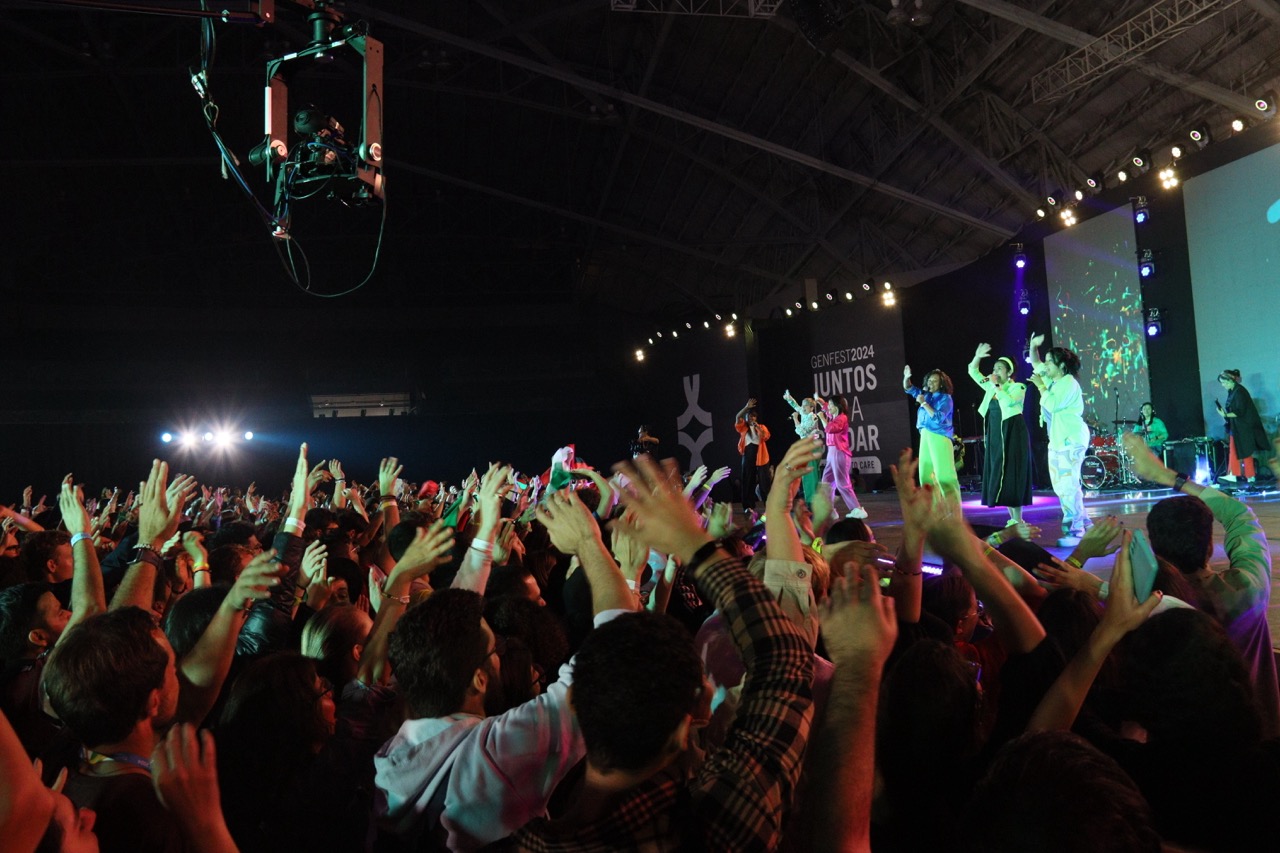
I imagine this gives us a rare sense of satisfaction, right?
Yes. Gen Verde does not sing the songs only to dance or sing along, but to convey an important message. The music, through its beauty, is the key, the instrument to convey it. To make the message more incisive and powerful. During the concert, the participants in Aparecida were actually taking the messages that are behind the songs.
An energy twice as positive.
Yes, it is difficult to explain. It was nforgettable.
How would you summarize the experience of the Genfest?
Precisely through these moments I talked about before… that sort of give you the energy to then face those moments in life where things get difficult and tough. These moments offer a profound and essential energy.
In this moment in history, we certainly experienced many of those moments of uncertainty. I am thinking first and foremost about war. There is a phrase by Margaret Karram, president of the Focolare Movement, that was key in this Genfest, she said: “Let us not ‘stay in peace’ until we have built peace”.
Today it is very difficult not to let all the terrible news get you down and depressed. In the face of so much evil, it is not easy to think that by my actions I can bring real positive change. I happen to feel powerless. However, I am fortunate and privileged to be part of a Gen Verde precisely because we try not to think that we are alone in fighting so much difficulty. We are together, and in everything we do, wether it’s on stage and ‘backstage’, in our daily life, we try to show a testimony, that the choice of peace is constant, daily.
How do you resist this sense of ‘defeat’?
By trying not to listen all the many negative voices. Not even the one that I may sometimes have within me, and that doesn’t help me move forward… the voice of pessimism. And instead of trying to put myself ‘in motion’… which is maybe the ‘high road’, but I think choosing this, in the end, bears more fruits, at least within me. And, like I said, I have the privilege of being surrounded by people who are trying to do that, and that helps me a lot… not only with the songs and workshops, of course, but especially in our daily life, where we try to put in practice this way of life, helping each other not to fall into the negativity.
So, could we say that there’s a link between art and life, in the Gen Verde?
One hundred percent. The message and the songs exist because of that, because at its basis it’s life. Even among ourselves. There is authenticity in the lyrics, which are created from the experiences we’ve lived and try to live. Otherwise, I believe the audience wouldn’t really receive anything… instead, this way, among so much violence and sad news, a positive message can be conveyed. Then, of course, good music helps, also wearing nice clothes, doing well-made videos on social media… because in a world full of negative messages, the positive ones must be given in the best possible way, because everything needs to help communicate that.
To conclude, what do you carry in your heart today from your days in Brazil?
I have to say, seeing so many people with different stories, backgrounds, cultures, trying to live with the same commitment, to bring positive change to the world. People who may be different from you, but with whom you share the same vision—or, better yet, the same dream of how the world could be. And that even with our diversity we can work together, in different areas, to do our small part to make that vision a reality.
